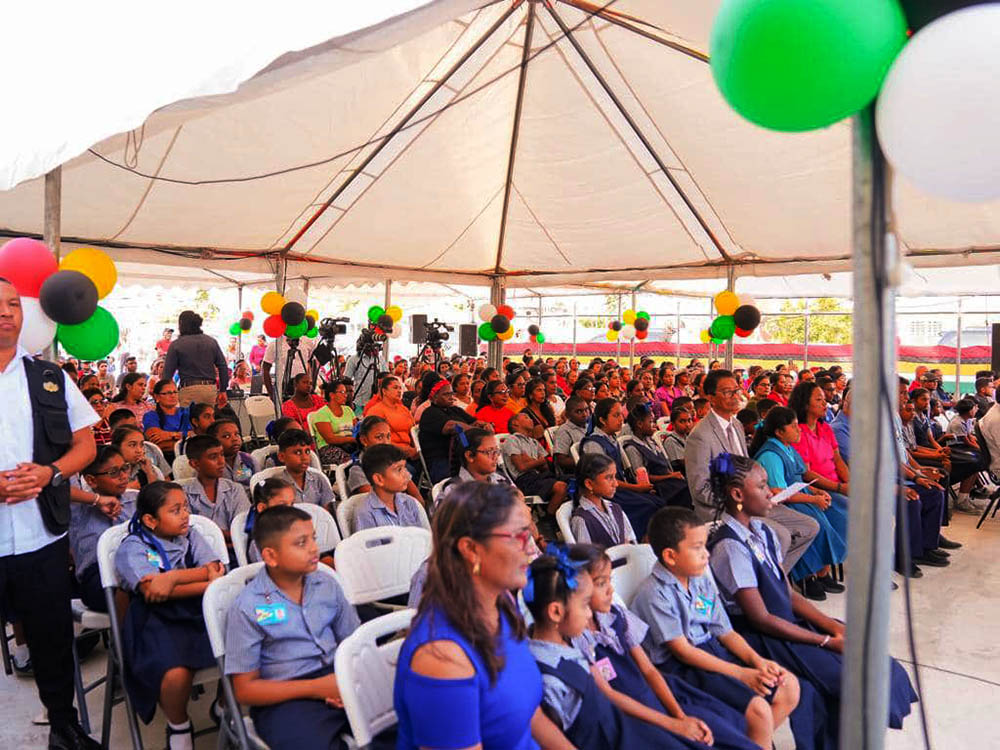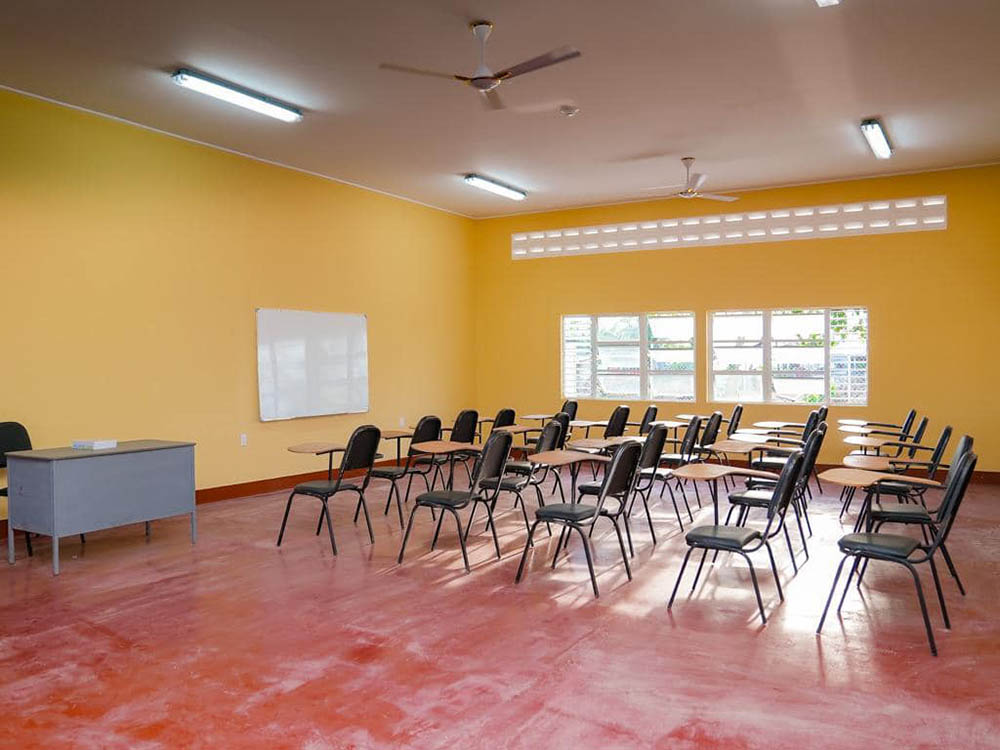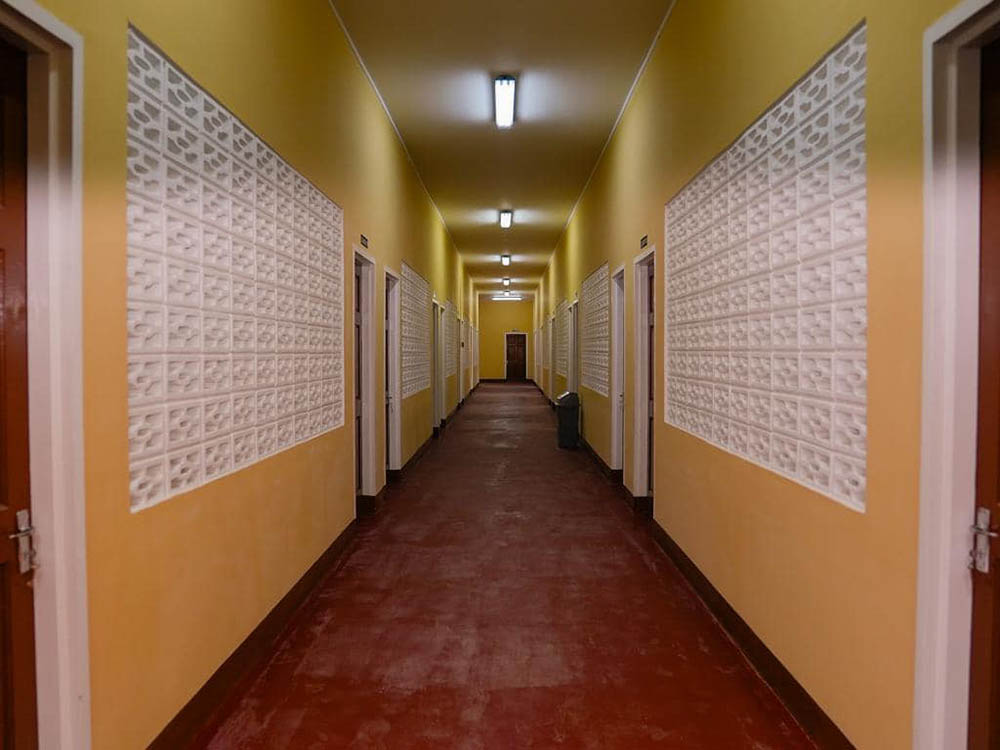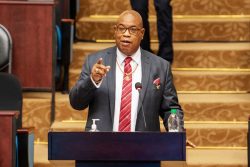By Joseph Allen
Inaugurating a $200m primary at Tuschen, President Irfaan Ali yesterday declared that schools will have greater autonomy to manage their affairs and cut bureaucracy.
This was announced at the commissioning of the Victoria Lily Primary School, at Tuschen, East Bank Essequibo.
At the commissioning, President Ali asserted that for too long getting the required needs for a school was mired in bureaucracy and in some cases, some decision-makers misused that power.
“One of the important policies the ministry is also working on is to give more autonomy to the schools in their decision-making and, in their management, very importantly. There is a system that is very centralised with too much bureaucracy and too many power brokers. For example, the school must go through the regional system to get basic essential things to manage the schools and then you have bureaucratic delays, you have sometimes the creation of little superpowers who believe that the authority given to them is to control how much chalk goes to a school. The government is providing all of this”, he declared.
President Ali said that the new policy will come on stream in the coming months and it will give the school authority more power with oversight from the PTA (Parent-Teacher Association) and others.
“In the education system, we are going to give more power to the schools and the administrations, the Parent- Teachers Associations. As the Minister said we are going to directly disburse to the schools and then hold you accountable. […so] Let the PTA know what is disbursed to you so that we can develop greater management capacity, capability and leadership at the local level and have greater involvement in the communities and the delivery of service”, the President stated.
This, the President said, will be replicated in the healthcare sector also, which has been performing poorly.
“It’s something we are going to do at the healthcare level because I could speak comprehensively about healthcare in this region. We are spending too much money in this region for the type of results we are getting in healthcare.
People will have to buckle up and buckle up fast because we are not going to tolerate any type of delivery in the healthcare system that does not bring the results we are investing in”, Ali warned.
There was overcrowding in schools in Region Three which put students at a disadvantage. The president, however, saw the need for a new school, and that school was delivered yesterday, the ceremony was told.
The Victoria Lily Primary covers some 9,000 square feet and the school features an auditorium, kitchenette, and air-conditioned staff room, among others, and can accommodate 300 to 340 students in 12 classes.
There is a washroom for special education needs students, and the school also has smoke detectors and fire extinguishers. The building was erected at a cost of just under $200 million through a collaborative effort between the ministries of Education and Housing and Water. Victoria Lily Primary will be the first school to fully integrate Spanish teaching as compulsory subject.
At the commissioning ceremony, Minister of Education, Priya Manickchand emphasised that with the growing number of children in the country, and a large number of migrant children, a lot of schools will now have to be built in a shorter period of time to tackle this growing demand.
“We have to be innovative in …getting schools together not the usual 3 years; in a short time to be able to meet the needs we currently have. We are in need of what would be the most massive infrastructure build-out in education.”
Manickchand also noted that all necessary supplies are being provided for the classrooms, and teachers are receiving training alongside their salaries. The children will also benefit from the hot-meals programme.
She also pointed out that while there is a massive movement toward other infrastructure, education must also move along the same pace and as such, the same emphasis will be made on education.










